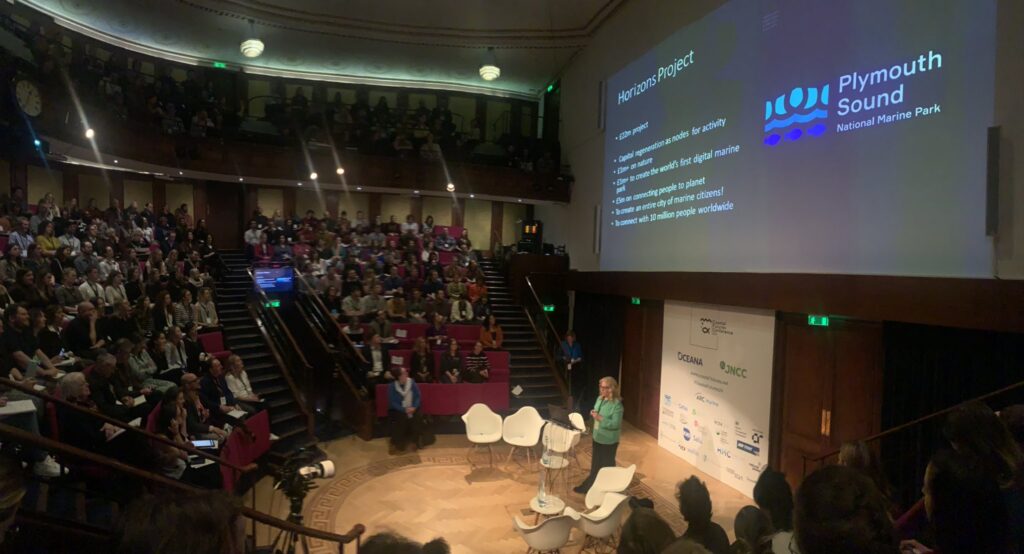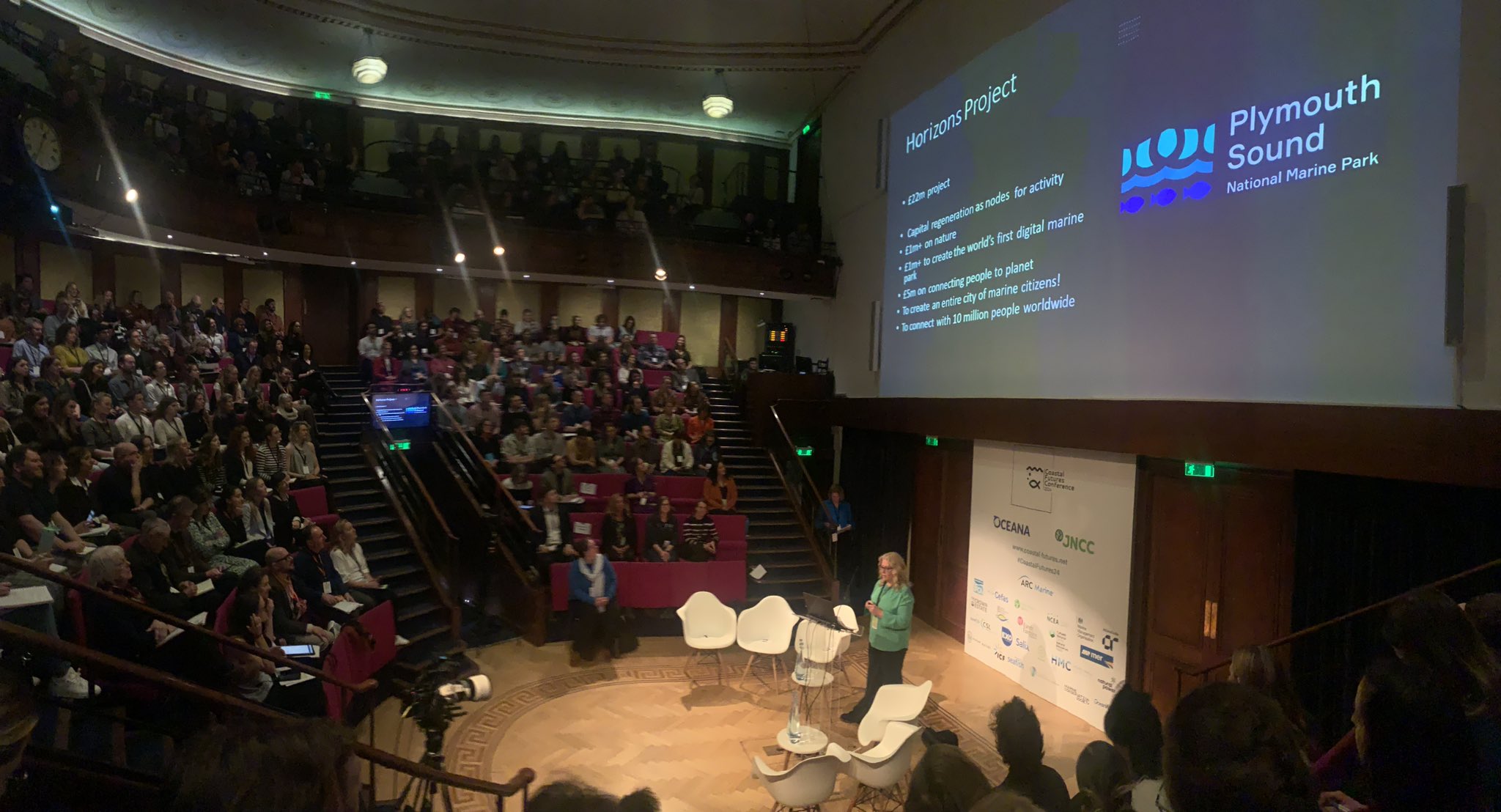Life can often seem like a series of relentless battles; wading through the mire of bureaucracy, old thinking, egos ahead of outcomes. In the environment sector (and I am sure others!) where bad news prevails being relentlessly optimistic and hopeful can be tough. So where does a marine warrior got to recharge her batteries?

Well for over thirty years the Ocean and Coastal Futures conference has been an important refuelling station for the blue believers! In the dark days of January, Coastal Futures is not simply a conference it is a coming together of people from across the marine sector with a single purpose to make things better for the blue planet and for people.
I always feel when I arrive that the energy levels are low, but there is a hum of anticipation in the queue to register. Once we have divested ourselves of winter coats and overnight bags, following the audible hum to the morning tea and coffee space ,energy lifts, as people spot colleagues and friends, many of whom we only see at Coastal Futures. Squeals of delight at seeing people we know, and laughter follows as we recount to each other the highs and lows of our latest marine (ad)ventures.
As always, the programme is jam packed with knowledge and inspiration – it is 2 days of being utterly immersed in the subject you have chosen, and I am always awed at the depth of knowledge, understanding and experience people share. Sometimes it is very raw – the speaker this year who could lose her home – another who is struggling with the menopause so needed a script (she didn’t!) and then the Mum who brought a letter from her kids’ primary school by mistake because she thought it was her notes – she didn’t need notes either!
This year I am speaking in the first session which is a real honour. And this presentation is special – because normally I am speaking about a technical element of marine work so facts, figures, interpretation. This year I am speaking from the heart about my passion and how we must put people at the very heart of all we do if we are to help the ocean recover (note Dr Gemma Harper).
I have been preparing for weeks – and I only have 10 minutes to share everything I want to say – as I said the agenda is packed. Oh and did I mention the 600 people listening?
Before I know it I am on my feet and talking. I am totally focused on sharing what I believe. The room is hushed, I have them! And then the time is up, applause is given, and the next speaker stands. Just a terrifying panel session with questions from the floor and online to go.
As lunch is called the first group of speakers are besieged with people offering thanks and conversations; we are connected, collectively enthused and looking for how we can do more, reach more, restore more.
At lunch you can feel the rise in energy levels – more and bigger conversations are happening; new connections are being made, projects formulated, experiences shared.
I find Charles Clover (author of Rewilding the Sea) leaning on a wall chatting about National Marine Parks – we share some thoughts and then head off in opposite directions – we have come to connect to others.
I spend the lunch hour visiting stands and talking about projects new and existing. National Marine Parks are gaining traction across the UK and I am being asked to meet with people keen to know how the model could work for them.
Another fantastic session follows and I can feel my energy levels dropping. Fortunately, Coastal Futures has a tradition of serving cake in quantity and so energy levels restored I decide it is time to catch up with some former colleagues. Amongst the crowd I find former colleagues from North Devon, from the IFCAs, a contingent of excited students from Plymouth University, so great to see them here. Dr Sian Rees also from University of Plymouth who with her team researched and wrote the State of the Sound report for the PSNMP.
By the end of Day 1 my brain is already full and a night with some beers and chat is called for to decompress and digest.
Day 2 is more laid back. We have all slipped into our conference routine; smiles and nods are exchanged. The morning session is around data and evidence and the news for the marine environment is stark. But restoring nature is a mighty job and will happen slowly. It is conferences such as these that keep us all going, the shared knowledge that we are the people who can help nature and support people to do the same.
The afternoon is a time for good byes and reflection on an amazing 2 days. I head to the train station with a long to do list and no voice left. I am tired but ready to go again. I am just one voice, one advocate, we need everyone to help us, our planet needs us so come on people!


